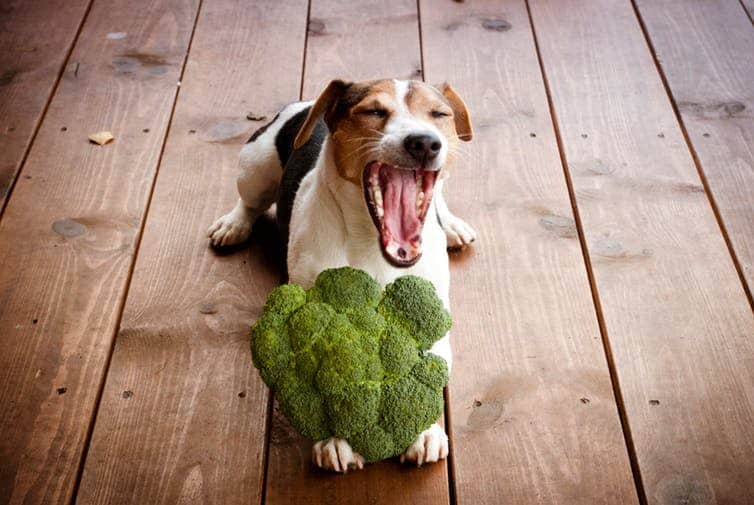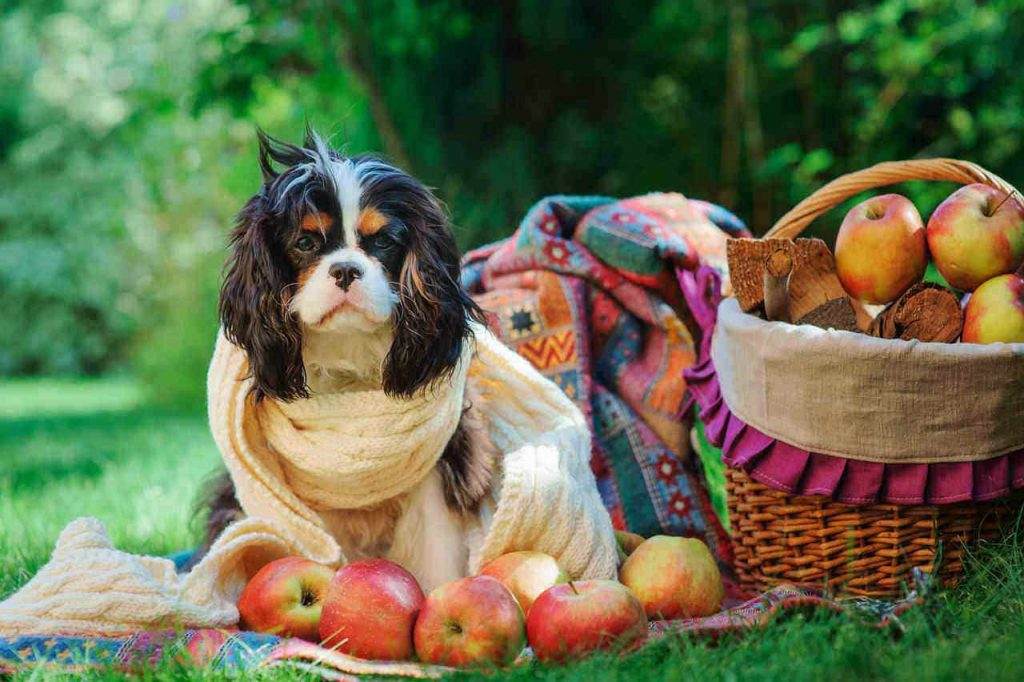Every time I look at my dog, I see a carnivore that can only consume nothing other than meat. Many owners could have similar thoughts about their pets. They will obviously avoid the idea that their animals are natural predators that need to feed on prey to survive.
It is surprising as this is not always the case since there is more to our best friends than the idea of them being carnivores.
The magazines, books, newspapers, and movies all have a common theme regarding these animals. They are a distant cousin of wolves and their main meal is other animals. This is the assumption, which we strongly believe to be true, about the diet of these animals that we pass on to our generations.
Nonetheless, there has been evidence to support the idea of them being vegans. Can you imagine it? The animal that you believed cannot eat anything else other than meat can now eat fruits and vegetables.
The idea can be confusing as it would mean reclassifying this species.
We would have to classify our best friends as “omnivores” and not entirely carnivorous as assumed. The idea of vegetarian dogs has influenced debate where both sides seek to justify their conclusions. I believe we cannot have a straight answer to this concept unless we attempt to understand both sides of this argument.
Human vs Dogs Digestive Tract
Digestion begins in the mouth, which would be a significant place for us to start. You may have read or studied that these animals can evolve.
They have managed to evolve over time to the point where they can now produce more amylase. The amylase is an enzyme that is responsible for the conversion of starch into sugars.
The enzyme also allows its digestive system to convert and use grain. Many mammals, humans included, produce amylase in their saliva. Therefore, chewing our foods will help us digest carbohydrates in our diets. The same is not the case among them as they lack salivary amylase.
The amylase is inadequate among them as they do not spend much of their time chewing food. They will bite, crush, and swallow.
You can conduct a simple study where you compete when eating and observe the one finish first – obviously, your pet will win! It proves the idea that they do not spend much time chewing.
It is also confirmed that our pets have a much shorter digestive tract than the ones we have. In other words, they cannot digest, process, and discard foods (plant-based) through the liver and gut. They will always have difficulties breaking down cellulose.
For example, if you gave them large portions of raw carrots the end result, after digestion, will look almost the same. It is an indication that their digestive tract does not absorb any nutrients from the carrot.
However, research indicates the evolution, over the years, has allowed them to be in a position to release amylase. This enzyme does not exist in high amounts among wolves as in dogs, which means that they digest cereals, potatoes, and starch five times better than wolves.
Adaptability might have allowed domestic dogs to flourish on cereals and grains provided by human beings.
Researchers have also found that they have another enzyme, maltose, which allows them to digest starch. The maltose is similar to that found among herbivores like rates, cows, and omnivores as compared to that found among wolves.
Is it possible they were built to eat only meat and other related products?
Archaeologists have provided so much information about the evolution of living organisms, especially human beings, to explain why we eat what we eat, interact, and possibly behave the way we do.
For the purpose of this article, let’s focus on the idea of a diet. They categorize human beings as omnivorous based on the shape of our teeth, skulls, and body structure.
When it comes to our best friends, we could use the same idea to analyze their skull structure to understand their diet. It is observed that despite evolving, the dog’s sharp teeth and strong jaw structure have not changed. They still require sharp teeth to tear flesh and strong jaws to hold or break bones.
The size and shape of the skull have a major impact on their chewing ability and characteristics. An observation of previous studies shows there is a link between the shape of their skull and dental health. Also, the changes observed among them such an increase in short muzzles, suggests that we are impacting them by changing their diets.
As human beings, our digestive tract is longer and our teeth are flatter than that of dogs; hence, we must cut our food into smaller pieces and grind them before digestion. Unlike humans, eating meat and bones is essential as it supports their physical function.
Also, their digestive system must be more acidic than ours for specific reasons – It is acidifying while plants are alkalinizing.
It may seem to be the best diet for our best friends, but there is a negative side. If they consume this food from animals raised in factories, you should note that it will contain high levels of cortisol, a stress hormone. Cortisol can cause serious damage to their pituitary gland, thyroid, and adrenal glands.
Also, it may contain toxins that may cause serious problems. Moreover, the toxins accumulated in the tissues of farm animals, ingested from foods contaminated with pesticides, are more dangerous than feeding dogs on vegetables or fruits.
According to research, breastfeeding mothers who feed on meat have 36% more toxins than vegetarian mothers. It is because human digestive systems are very different from dogs, keep in mind that humans are not made to eat this food, at least not as much as the amount we eat.
Dogs are less affected by it because they digest it faster than us, as their digestive tract is shorter, also it does not stay long in the body; thus, reducing its toxicity to the body.
Why is Chewing Important to Dogs?
Our best friends need to chew meat for various reasons. Through chewing, they get to exercise their jaw muscles. It will help them to scrape off dental plaque. Chewing a hard meal will also provide them with relief from irritating gums – when teething among puppies.
As noted, most of these benefits may only be attained when our pet is chewing beef and not fruits or vegetable as they are light meals. It may not be much of an argument but it still supports the idea of dogs feeding on meat.
So, Can They be Vegetarian?
Among humans, the benefits of vegan diets are difficult to dispute and there is enough evidence to support the idea that we can survive without meat. In addition to being the most compassionate choice, vegan diets minimize the risk of us getting obesity, diabetes, heart disease, and other health complications.
Since the vegan diet seems to be “working health miracles” for humans, it brings curiosity on what it could do for our best friends. Can we feed them vegetarian foods?
After examining every benefit and disadvantage of either option, the simple answer could be “it depends.” Initially, we observed an ongoing discussion on whether our pets (dogs) are carnivores, omnivores, or they are in-between.
Various studies have verified that these animals have numerous omnivorous qualities
- They can digest most of the carbohydrates they consume
- Their molars have relatively flat surfaces that make allow them to grind fibrous plant material and bones
- Despite being shorter than that of humans, their small intestine remains to be enough to allow for the digestion of vegetables like other omnivores
- Their bodies can create vitamin A from beta carotene, which is an essential nutrient found in plants
This means that our favorite animals can get the necessary nutrients from plant and animal proteins. Nevertheless, meat is considered an important source of protein and to be honest, many dogs will show enthusiasm over a slice of meat than a carrot or any other vegetable.
You may be surprised that fruits and vegetables may not get your pet to turn its head compared to beef.

There are still many claims on the idea of these becoming vegetarian. They can eat vegetarian foods and still flourish depending on their bodies’ work.
Technically, they can survive and work well with vegan and vegetarian diets. It is generally thought that they are carnivores like the ancestors of wolves, but that means they need have to eat beef or related products to survive. However, that may not be entirely correct.
They are members of a carnivore order- it should also be noted that it also contains giant pandas that almost exclusively eat bamboo – but dogs may actually be omnivores. As we observed their digestive system very capable of digesting the nutrients contained in fruits and vegetables.
The topic of our best friends eating vegetables is certainly interesting for vegetarians, but owners, who have no problem with their pets eating beef products, must also pay attention. As noted, without any doubt our beloved pets belong to the carnivores group, but they are actually omnivores.
They can convert specific proteins and building blocks into amino acids. In other words, dogs can get all the amino acids they need while avoiding the meat.
Being a vegetarian does not necessarily mean it will bring nutritional problems to dogs. In fact, other products such as eggs have the highest protein used in many pet foods. The biological value of a protein is measured by its ability to provide the individual amino acids needed by the animal.
Eggs are an excellent source of protein. Even vegans that avoid feeding on any animal product may consider using it as a source of protein for their favorite animal. An appropriate balance of different plant sources that provide protein like corn, beans, whole grain flour, and soy, can still provide the desired amino acids.
Vegetarians need this information as it helps them understand the confusing information about the necessary nutrients. We may all agree that they can survive without eating meat as necessary as we may perceive meat to be part of their diet. The only problem that could develop when attempting to introduce them to a vegan life is acceptance.
I believe they become accustomed to eating meat only when we make it their primary meal. Such pets will find it difficult to abandon chicken, fish, or beef for fruits and vegetables. It may not be an easy process but with time our best friend will learn to accept the new diet and probably love it.
I would recommend watching these Youtube videos too:
Conclusion
Before we conclude that a vegan diet could work equally to any diet with beef products there is a specific concept that must be examined. Proteins from animal products such as keratin, elastin, and collagen, are essential for healthy joints, muscles, and skins and they are difficult to derive from a vegan diet.
It may be a cause for concern since our ultimate goal is to give our pets a reliable diet.
It is also important to understand that vegetarian pets can experience severe health problems caused by malnutrition.
You might be excited that your best friend could be a vegetarian and hope they will be healthy but the reality could be that there are more consequences than we can assume. They can be vegetarian as long as their diet is under the supervision of a licensed veterinary.
References
Table of Contents


